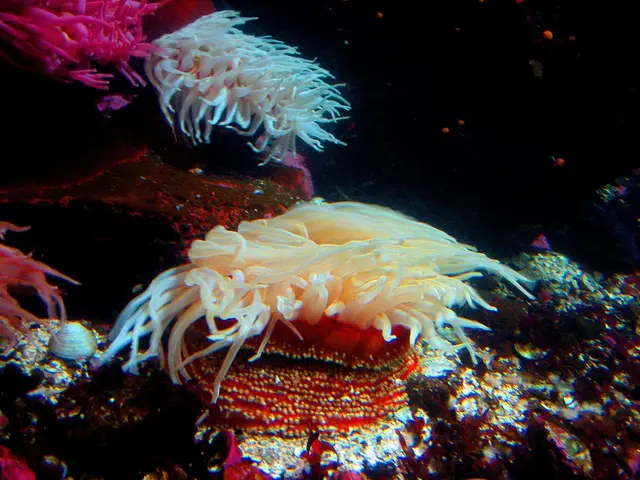Information on the Presence of Heavily Toxic Metals in Infant Foods
In the world of parenting, ensuring the health and well-being of our little ones is paramount. One concern that has gained attention recently is the potential exposure of babies to heavy metals, such as arsenic, lead, cadmium, and mercury, in their food. Here's a simple guide to help parents minimize their baby's exposure.
Increasing Dietary Variety
Offering a wide range of fruits, vegetables, leafy greens, and grains is key. By doing so, parents can reduce the risk of exposure from any single source and maximize nutrition. This approach not only helps in minimizing heavy metal exposure but also ensures a balanced, nutrient-rich diet for the growing child.
Avoiding Rice and Rice-Based Products
Rice, unfortunately, is often high in arsenic, a heavy metal linked to developmental issues. To mitigate this, experts recommend substituting rice-based products with iron-fortified oatmeal, barley, or multigrain cereals instead of infant rice cereals or brown rice syrup products.
Peeling Root Vegetables
Root vegetables, like potatoes and sweet potatoes, may contain higher levels of heavy metals due to growing under the soil. Peeling these vegetables can help reduce exposure to lead and cadmium, although it's important to note that this can also reduce some nutrients.
Limiting Fruit Juice
Juice can contain elevated levels of heavy metals and offers no nutritional benefit over whole fruits. It's advisable to avoid juice for infants under 12 months and limit its consumption to 4-6 ounces for older children.
Making Homemade Baby Food
Preparing purees from fresh, organic produce allows parents to control ingredients and reduce contaminants. Choosing whole, organic foods and reading labels carefully can help parents make informed decisions about their baby's food.
Ensuring Adequate Nutrient Intake
Including iron, calcium, and vitamin C-rich foods in a baby's diet can help limit the absorption and retention of toxic metals in the body. These nutrients play a crucial role in supporting the body's natural detoxification and minimizing harm.
Regulatory Action
The issue of heavy metal contamination in baby food has drawn increased legislative focus. In 2021, the U.S. Food and Drug Administration (FDA) launched the Closer to Zero project to reduce exposure to contaminants in food for babies and young children. The FDA prioritizes testing foods commonly eaten by babies and young children due to their vulnerability to heavy metal exposure.
If parents have concerns about heavy metal exposure in their child, consulting a pediatrician or qualified healthcare professional for personalized advice and testing is advisable. Detox products are not generally recommended without professional supervision.
In conclusion, while the levels of heavy metals in baby food are typically extremely low and too low to typically cause damage, it's always better to err on the side of caution. By following these guidelines, parents can help ensure their baby's diet is as safe and nutritious as possible.
Read also:
- Managing Stormwater Efficiently through the Use of Permaculture Planning
- Following a heart attack, a person may be prescribed various medications to manage risks, improve heart function, and prevent further cardiac events. These could include:
- Radiation treatment for cervical cancer via internal means
- Treating hypertension with diuretics is a common method used by medical professionals. Diuretics help the body to remove excess salt and water, lowering blood pressure.








